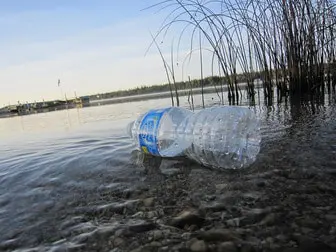Carbon Footprint, Guest Blog, Sustainability
What Really Happens to Your Waste Plastic? – The Key Question for International Waste Management
If all the plastic we consumed was recycled, we would soon be able to reduce our heavy dependency on fossil fuels. Could it therefore be, that when we examine the global view of the largest waste management companies, there is simply not enough emphasis placed on plastic recycling?
The answer to these two questions, according to findings from an International Solid Waste Association (ISWA) task force report published in September, 2014, is a resounding “no.” If the biggest players in plastic recyclables in the world are rapidly increasing the amount of plastics being collected, why is the quality of our environment not experiencing improvements by leaps and bounds? For the answer to that question, we simply need to follow the economics.
International Waste Recycling Progress
As a society, we have sounded the alarm for the need to recycle plastic goods and it appears the warning has been taken seriously. Virtually every industrialised nation has at least doubled the collection of plastic recyclables during the last decade and some individual countries like Sweden, Norway and Switzerland are recycling at a total internal percentage rate above 70%, according to ISWA data. If the worldwide volume of plastic produced during the last 10 years was not more than the volume produced during the previous 30 years, there might have been some progress to show for those efforts.
Intense Global Pressure to Recycle Waste
With the intense global pressure placed upon the necessity to recycle, combined with the impressive increase in recyclable plastics being collected, our skies and waterways should be clearing up at record rates; that logic is simple to follow. Billions of people are listening to instructions and sifting through rubbish to help create a better planet, because it is much more than the “right thing to do”, it is our way of securing the existence of future generations. If everyone continues to sort plastics and place them for separate collection, there is no doubt we will win the battle against environmental pollution…we are saving the planet one milk carton at a time. We can keep believing that myth and click our ruby-red slippers and wish it to be so, but the reality of the situation is completely the opposite of what most perceive to be true.
Logic would dictate that waste management companies, for example Vanden Recycling, must be saving our lives one empty container at a time, after all, they are the “middlemen” in the fight against creating land-fills. In truth the plastic items we are leaving outside, on our curbs, in blue containers, are basically nothing more than “vouchers” for waste management companies to eventually redeem for profit. The plastic we sort through is not being used as a prescription for curing our planet, it is simply being converted into currency, when it is sold. Some of the wealthiest nations in the world, appear to be endorsing government sponsored “green” policies, when in truth they may be doing little more than seducing their citizens with catchy slogans, and looking the other way as the items are eventually loaded onto a ship and sent to China, either directly, or through Hong Kong, by waste management companies. It is Hong Kong who has been the “catch all” for the waste of the world, for many years, because they remain, popularly identified, as the “friendliest” point of entry for waste garbage which has been collected from across the globe. Ironically, according to the ISWA task force, it is Hong Kong, USA, Germany, Japan and the UK, who are the top five exporters of recyclable plastics. China leads import countries with 73% of the plastic coming into their nation, followed by 19.7% for Hong Kong. The USA, Belgium and Netherlands import a fraction over 2% each.
International Waste Management – Pressure from the People
In the ISWA task force report, they clearly identified the fact that the global recycling plastic market has but “one player” and that is without question, China. With the lack of transparency throughout the Waste Management companies in China, it may seem as no surprise, that great wealth has been created by the influx of our world’s recyclable plastic.
Vast landfills of waste garbage and toxic pollution, as a result of dumping in China, caused the Chinese citizens to put enough pressure on the government to start limiting the amounts and types of waste entering the country through legislation in 2013. The restrictions have raised the cost for waste management companies globally.
Very little accurate and confirmed data can be found with respect to waste management operations in many countries. With the lack of transparency associated with the industry, it is difficult to measure how many statics are “real” and whether or not regulations and laws are being enforced with any consistency. So, whilst it is clear that much progress has been made on international waste management, without increased sector and international transparency we will never be fully sure of how much further we need to progress. Time for more people power perhaps?
Charity Guevarra is a secondary school teacher teaching computer to high school Pilipino students. She’s an environmentalist and loves to write about environmental concerns and how to solve them. Her interest share a focus on controversial modern technologies designed to solve environmental problems from climate change to energy security.
If you like this post please consider sharing it on social media using the buttons below or signing up to our Newsletter.

